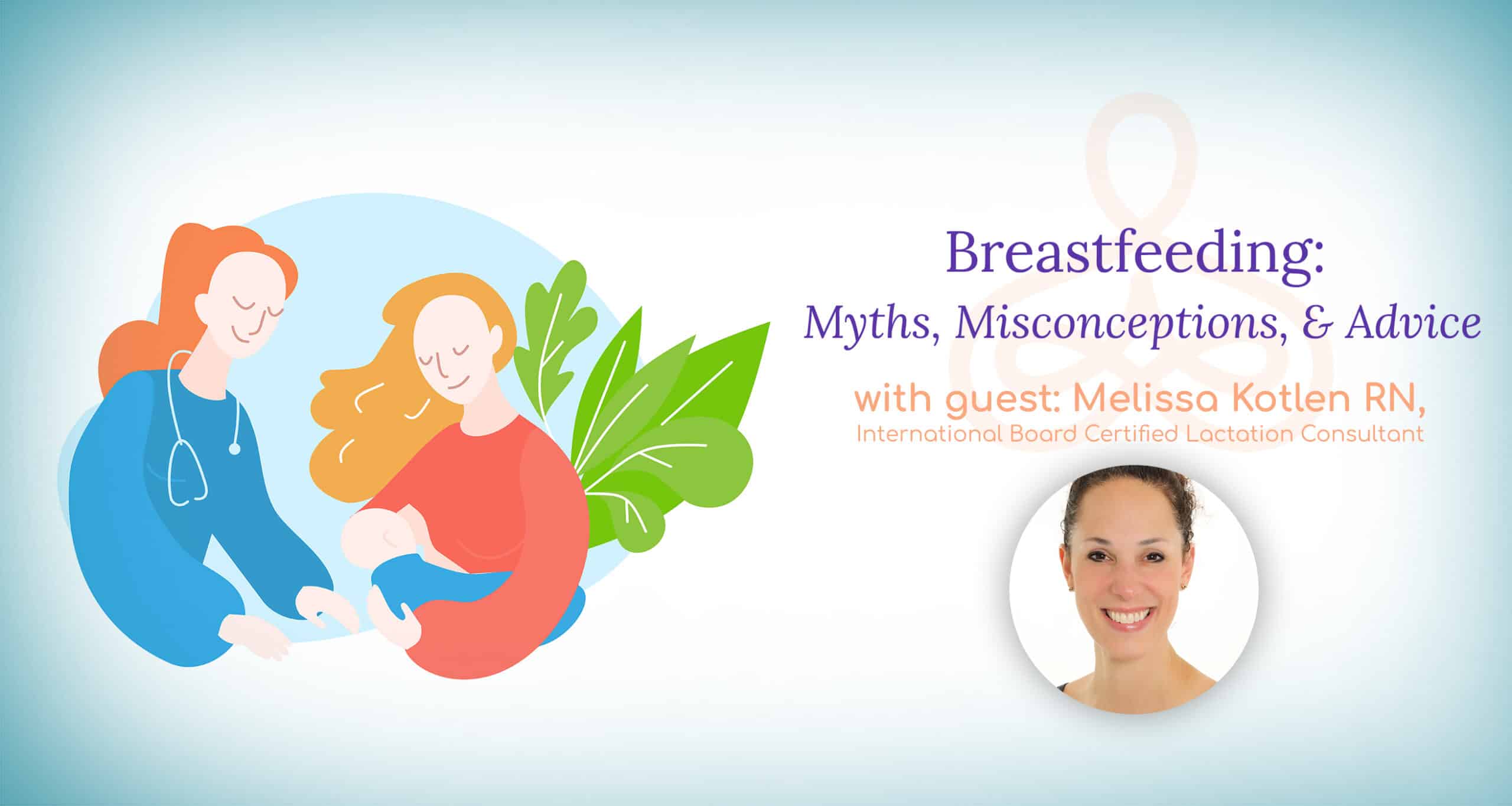On a recent episode of the Healthful Woman podcast, OB-GYN and maternal-fetal health specialist Dr. Nathan Fox discusses breastfeeding myths and misconceptions with Melissa Kotlen, RN, and lactation consultant. As they break down these misconceptions, they offer helpful advice and recommendations to help women successfully navigate breastfeeding.
Is Breastfeeding Necessary?
One of the biggest misconceptions is that women must breastfeed. This is not true. Ultimately, it is a woman’s choice whether she wishes to breastfeed and it’s important to understand the emotional toll that breastfeeding can have. Here are a few things to consider:
Breastfeeding Guilt
It’s important to recognize that not all mothers want to breastfeed and that is perfectly fine. One of the first things that Melissa makes clear to new mothers is that “[breastfeeding] is your happiness.” She would much rather have a happy mom who is formula feeding than a mother breastfeeding her child because she was pressured into it by her family. If a woman’s baby is formula feeding, she has the chance to take time for herself, which can have a significantly positive impact on mental health.
Pumping
If women do not want to breastfeed, Melissa will suggest pumping once a day. This task often feels less daunting for her patients compared to breastfeeding multiple times a day. However, some may still not want to pump because it causes stress or discomfort. For those women, she will recommend other ways to bond with their babies that do not involve breastfeeding or pumping.
Common Breastfeeding Myths
Melissa shares her insight about common myths she hears from patients regarding breastfeeding:
Breast Size
A woman’s breast size does not matter when it comes to breastfeeding. What does make a difference is the amount of glandular tissue a woman has. In fact, Melissa has seen women with large breasts who produce less milk than women with A-cup breasts.
Food Choice
According to Melissa, women should “eat anything and everything,” even when breastfeeding. Contrary to popular belief, your baby will not taste the food you eat, so it generally does not make a difference. However, the one thing that breastfeeding babies might have a reaction to is cow’s milk protein so be aware of this if you eat or drink a lot of dairy products.
Exercise
Past research claimed that exercising before breastfeeding would cause the baby to reject the breast. Exercise itself does not affect a baby’s ability to breastfeed. What babies are actually rejecting is the salty taste of sweat after a hard workout so it’s important to shower after exercising and before you breastfeed. The only concern Melissa has about exercising while breastfeeding is staying hydrated, so she recommends carrying a water bottle or water backpack.
How You Can Prepare for Breastfeeding
If you’re planning on breastfeeding, Melissa strongly recommends prep classes so that you have the necessary tips and tricks to successfully breastfeed. Latching is one of the main concerns for mothers. It’s important that the baby latches onto the breast, not just the nipple. If the baby’s lips are not flared out around the nipple, they will suck or bite onto the nipple itself which is painful for the mother.
Another important piece of information is regarding how much breast milk your baby needs. Newborns’ stomachs are about the size of a marble, so they only need a teaspoon of milk to be full. Most women will produce more than enough milk for their babies.
Who Should Consult a Lactation Consultant
Meeting with a lactation consultant can be helpful for all women. Whether you simply want to check in and make sure everything is going or if you notice apparent problems, a consultant can help. They will be able to assess how well your baby is latching and whether underlying issues like a tongue tie are contributing to breastfeeding difficulties.
Learn More on the Healthful Woman Podcast
For more breastfeeding advice, check out our mini series on the Healthful Woman podcast. Our team of maternal-fetal health specialists is here to help you feel comfortable and confident as you navigate breastfeeding and other important steps during and after pregnancy.

